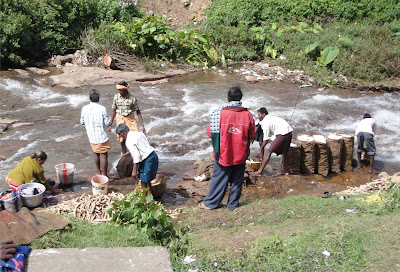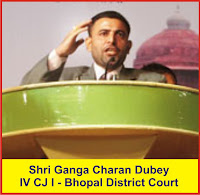Arbitration and Conciliation (Amendment) Ordinance, 2015 - Salient features
The President of India promulgated the Arbitration and
Conciliation (Amendment) Ordinance, 2015 ("the
Ordinance") on October 23, 2015 amending the Arbitration and
Conciliation Act, 1996 ("the Act"). The said Ordinance
has come into force on the date of notification i.e. October 23,
2015.
Some of the salient features of the Ordinance:
Unless the parties agree to the contrary, provisions of Section 9 (interim measures by court), 27 (court assistance in taking evidence) and 37 (1)(a) (appeal from order granting or refusing interim measure by courts) and 37(3) will also apply to international commercial arbitration even if the place of arbitration is outside India and the arbitral award made or to be made is enforceable under Part II.
[Note: Section 37(1)(a) has been amended by the Ordinance, which now relates to appeals from order of refusal pursuant to an application under Section 8 of the Act. However, it appears that Section 2(2), as amended, intended to refer to Section 37(1)(a) as it originally stood viz. appeal from order granting or refusing interim measures by court. This issue needs some clarity.]
Order refusing to refer the parties to arbitration is appealable under Section 37.
The arbitral tribunal is to make the award within 12 (twelve) months from the date the arbitral tribunal receives notice in writing of its appointment. The parties may, by consent, extend the aforesaid period by 6 (six) months. If the award is not made within the aforesaid period (viz. 18 months), then the mandate of arbitrator shall terminate unless, the court extends the period, prior to or after expiry of the aforesaid period on an application by a party.
[Note: The rate of interest applicable in such cases, prior to the Ordinance was 18% p.a.]
Similar amendments have also been introduced in Sections 48 and 57 making the test of conflict with public policy a uniform one for domestic and foreign awards.
An application to set aside the award is to be disposed of by the court within a period of one (1) year.
The content of this article is intended to provide a general guide to the subject matter. Specialist advice should be sought about your specific circumstances.
Courtesy : DSK Legal
Some of the salient features of the Ordinance:
1. Jurisdiction of Indian Courts in case of international commercial arbitration [Section 2]
In case of international commercial arbitrations, no court inferior to a High Court shall have jurisdiction.Unless the parties agree to the contrary, provisions of Section 9 (interim measures by court), 27 (court assistance in taking evidence) and 37 (1)(a) (appeal from order granting or refusing interim measure by courts) and 37(3) will also apply to international commercial arbitration even if the place of arbitration is outside India and the arbitral award made or to be made is enforceable under Part II.
[Note: Section 37(1)(a) has been amended by the Ordinance, which now relates to appeals from order of refusal pursuant to an application under Section 8 of the Act. However, it appears that Section 2(2), as amended, intended to refer to Section 37(1)(a) as it originally stood viz. appeal from order granting or refusing interim measures by court. This issue needs some clarity.]
2. Limited scope to refuse the request to refer the dispute to arbitration [Section 8]
Once an application is made (prior to submission of first statement on substance of dispute) by party to arbitration, or any person claiming through or under him, to judicial authority to refer parties to arbitration, the judicial authority is required to refer the parties to arbitration. Only exception is where the judicial authority finds that prima facie no valid arbitration agreement exists.Order refusing to refer the parties to arbitration is appealable under Section 37.
3. Grant of interim measures by the court to be followed by commencement of arbitration proceedings [Section 9]
Where any order for interim protection has been passed by a court prior to the commencement of the arbitration proceedings, the arbitration proceedings have to commence within a period of 90 (ninety) days from the date of such order or such further time as the court may determine.Scope for court to entertain application for interim reliefs during arbitration:
Once the arbitral tribunal has been constituted, court shall not entertain an application for interim measure unless the court finds that having regard to circumstances, the remedy provided under Section 17 (interim measures before the arbitral tribunal) may not be efficacious.4. Appointment of Arbitrator [Section 11]
The authority to appoint arbitrator is now of the Supreme Court, in case of international commercial arbitration, and that of the High Court/s in case of other arbitrations, instead of respective Chief Justices.Time for disposal of application:
An application for appointment of arbitrator is to be disposed as expeditiously as possible and endeavor is to be made to dispose of the matter within a period of 60 (sixty) days from the date of service of notice to the opposite party.Scope of Inquiry:
The court's scope of inquiry under Section 11 has been confined to examination of the existence of an arbitration agreement.Finality of Appointment:
No appeal (including a Letters Patent Appeal) shall lie against a decision of the court under Section 11.5. Disclosures of interest by Arbitrator/ ineligibility to act [Section 12]
An obligation has been cast upon the prospective arbitrator to make an express disclosure on (a) circumstances which are likely to give rise to justifiable doubts regarding his independence or impartiality; or (b) grounds which may affect his ability to complete the arbitration within 12 (twelve) months. Fifth Schedule to the Ordinance contains detailed list as to what would give rise to doubts about independence or impartiality.6. Absolute grounds of ineligibility to act as arbitrator [Section 12]
Seventh Schedule to the Ordinance lists the circumstances in which a person would be ineligible to act as arbitrator despite any prior contract to contrary. Parties can, however, waive the said provisions relating to ineligibility by express agreement in writing after the disputes have arisen.Applicability to pending arbitrations:
This provision shall not apply to cases where an arbitrator has already been appointed on or before commencement of the Ordinance.7. Enforceability and scope of Interim measures by the arbitral tribunal [Section 17]
The powers of arbitral tribunal to grant interim measures are similar to those of the court under Section 9 of the Act.Enforceability:
The interim orders passed by arbitral tribunal are enforceable under the Code of Civil Procedure (CPC) as if it were an order of the Court.8. Rules applicable to substance of dispute [Section 28]
The arbitral tribunal is to take into account the terms of the contract and trade usages applicable to the transaction while deciding and making an award.
9. Time bound disposal of arbitrations [Section 29A / Section
24]
Day to day hearings:
The Arbitral Tribunal is required, as far as possible, to hold day to day hearings for evidence or oral arguments and not grant adjournment without sufficient cause.The arbitral tribunal is to make the award within 12 (twelve) months from the date the arbitral tribunal receives notice in writing of its appointment. The parties may, by consent, extend the aforesaid period by 6 (six) months. If the award is not made within the aforesaid period (viz. 18 months), then the mandate of arbitrator shall terminate unless, the court extends the period, prior to or after expiry of the aforesaid period on an application by a party.
10. Fast track procedure [Section 29B]
The parties may, prior to or at the time of appointment of the arbitral tribunal, agree to a fast track procedure where the arbitral tribunal shall consist of a sole arbitrator who shall decide the dispute on basis of written pleadings, documents and submissions filed by the parties without any oral hearing (oral hearing may be held if all parties request or arbitral tribunal considers it necessary). The award is to be made within a period of 6 (six) months.11. Rate of interest, when Award is silent [Section 31]
An amount awarded by the arbitral tribunal will, unless otherwise specified by the arbitral tribunal, carry interest at 2% p.a. more than the current rate of interest, from the date of the award to the date of payment.[Note: The rate of interest applicable in such cases, prior to the Ordinance was 18% p.a.]
12. Detailed provisions regarding computation of cost [Section 31A]
New section is inserted listing the factors to be considered whilst granting cost which include conduct of parties, whether frivolous counter claims are made, whether reasonable offer to settle dispute is refused by any party, etc.13. Limiting Scope of "Public Policy" and time bound disposal of challenge to Award [Section 34]
The Ordinance seeks to restrict the challenge to an award on the ground of public policy only to the following:-- making of an award was induced/ affected by fraud or corruption or was in violation of Section 75 or Section 81 of the Act;
- where an award is in conflict with the fundamental policy of Indian Law; or
- where an award is in conflict with the most basic notions of morality or justice.
Similar amendments have also been introduced in Sections 48 and 57 making the test of conflict with public policy a uniform one for domestic and foreign awards.
An application to set aside the award is to be disposed of by the court within a period of one (1) year.
14. No automatic stay on Enforcement of Award by filing challenge proceedings [Section 36]
Mere filing of an application to set aside an award under Section 34 shall not itself render the award unenforceable. Party seeking stay on operation of an award, is required to file separate application for the same. Hence, unless stayed, the award will be enforceable after expiry of period prescribed to challenge the award. The court may stay the award on similar considerations as in case of stay of a money decree.The content of this article is intended to provide a general guide to the subject matter. Specialist advice should be sought about your specific circumstances.
Courtesy : DSK Legal






Comments